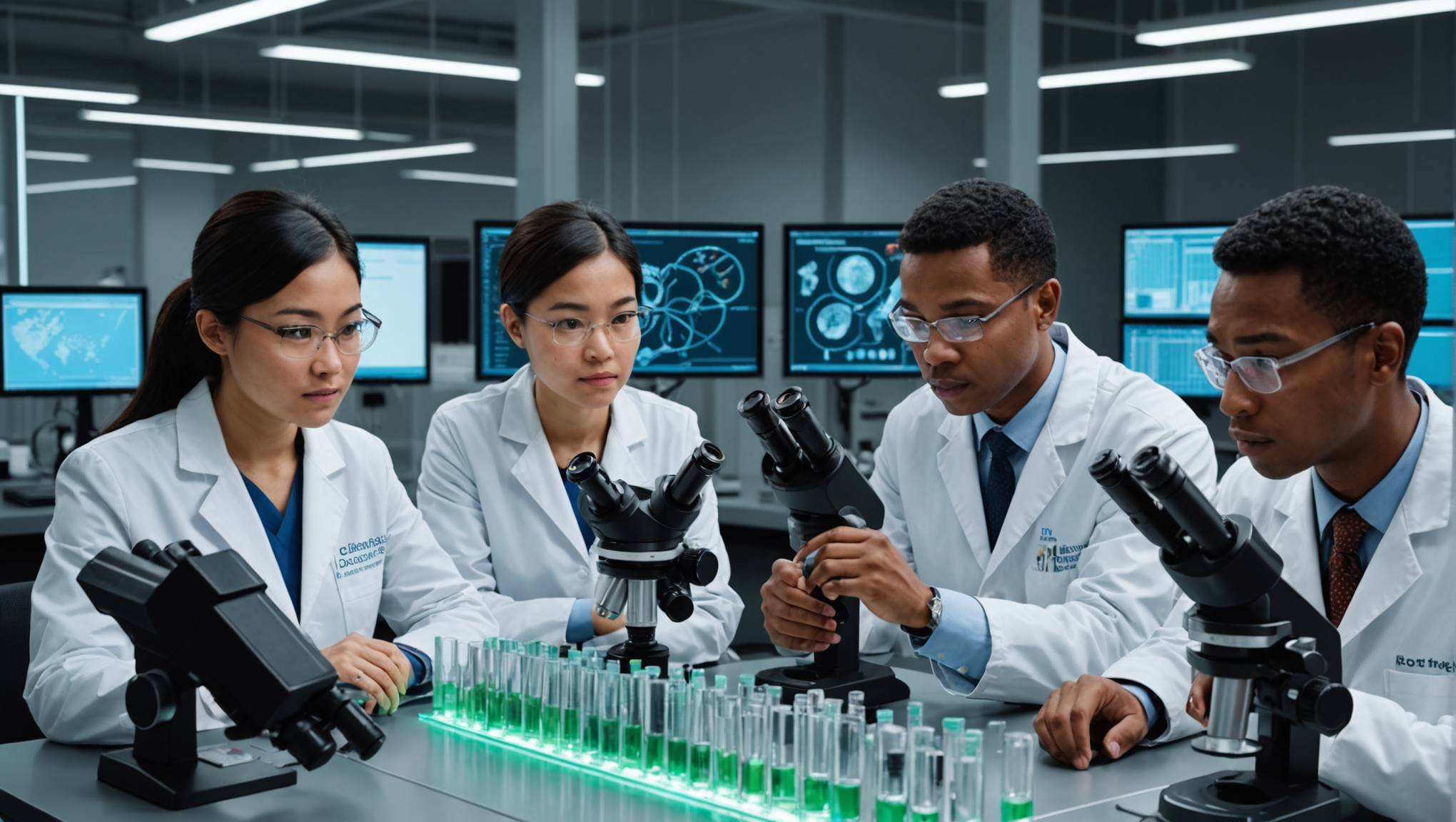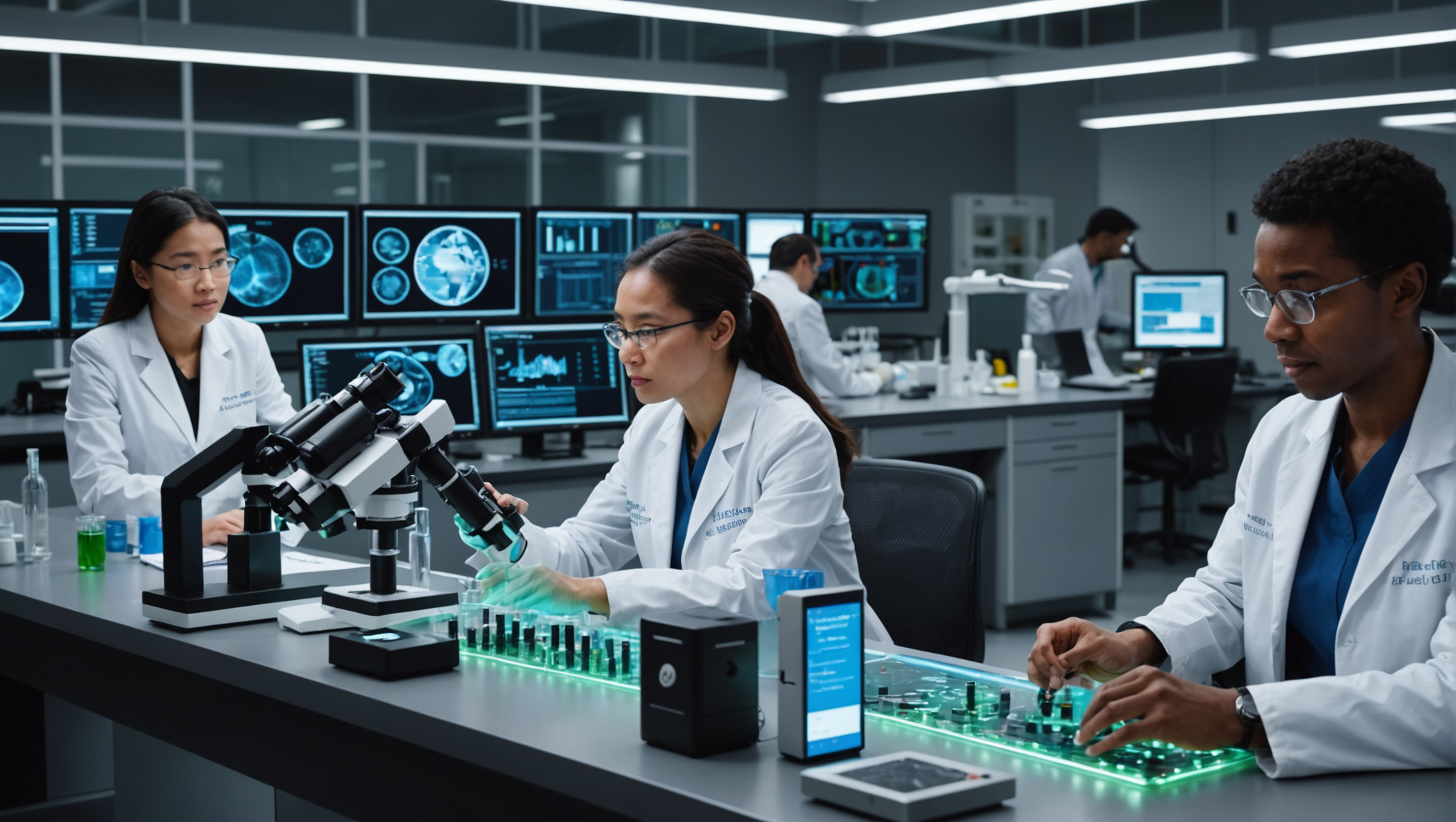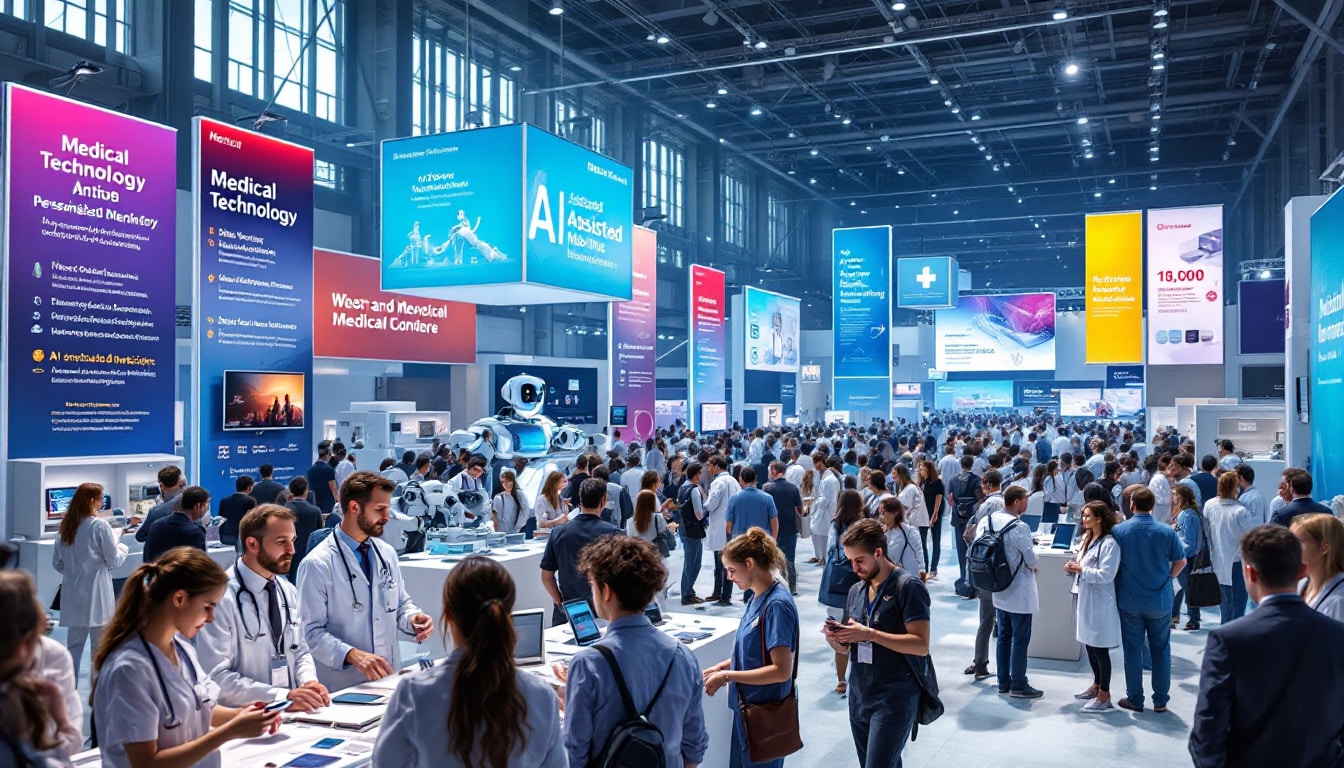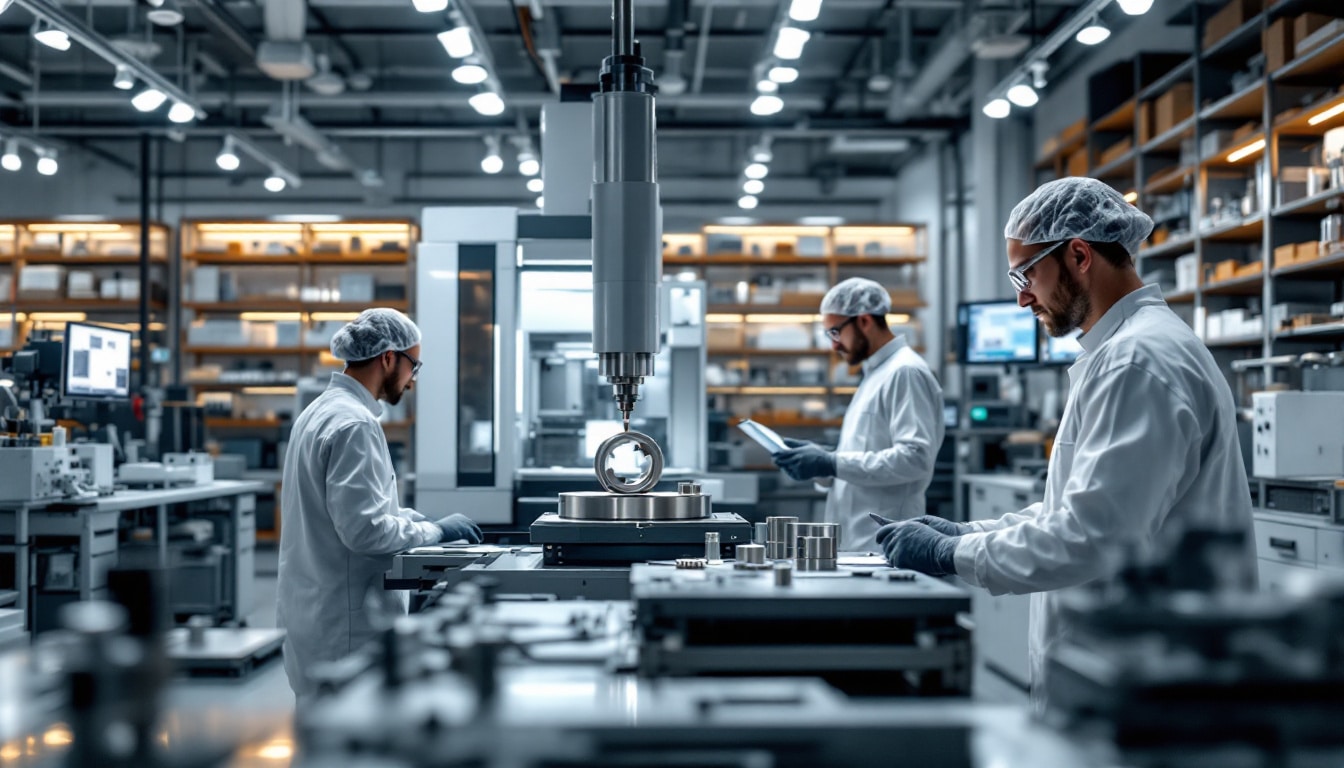THE biotechnology occupy a prominent place in current scientific developments, playing a crucial role in various sectors such as health, agriculture and the environment. With significant technological advances, biotechnologies offer enormous potential to address global challenges and improve quality of life. This discipline, at the crossroads of biology and technology, makes it possible to create innovative solutions for complex problems by exploiting biological systems.
Biotechnologies at the Heart of Medical Innovation
In the medical field, biotechnologies have made it possible to develop a multitude of new therapies and treatments. For example, genetic editing techniques like CRISPR have paved the way for major advances in the treatment of genetic diseases. According to a recent study, 70% of biotechnology researchers agree that CRISPR could revolutionize the field of gene therapy by offering safe and effective methods for modifying patients’ DNA, targeting diseases like cystic fibrosis or certain forms of cancer.
A concrete application case is that of the American company Editas Medicine, which uses CRISPR technology to develop treatments targeting hereditary eye diseases. In 2021, the first clinical trials were launched, opening up prospects of hope for millions of people around the world. The success of these treatments could well transform our approach to gene therapy.
THE biosimilars, which are biological products similar to existing drugs, represent another milestone in the sector. By offering less expensive alternatives to expensive treatments, these products contribute to reducing healthcare costs while maintaining comparable therapeutic effectiveness. Statistics show that the use of biosimilars could result in savings of up to $100 billion per year in the United States.
Biotechnology in Agriculture: Towards Sustainable Food Security
Precision agriculture is an area where biotechnology is having a profound impact. The use of genetically modified crops (GMO) allows farmers to produce food with better resistance to diseases and extreme weather conditions. For example, golden rice, which has been fortified with vitamin A, has the potential to save millions of lives in areas where malnutrition is widespread.
In 2022, a study conducted by the University of California found that GMO crops can reduce pesticide use by more than 30%, contributing to more sustainable and environmentally friendly agriculture. This reduction in pesticides is also linked to the protection of biodiversity, ensuring a healthier and more resilient agricultural ecosystem.
At the same time, the use of microorganisms in agriculture, particularly those that improve soil fertility, is booming. Research shows that using these microorganisms can increase agricultural yields by 20-40% without the need for harmful chemical fertilizers. Farmers are increasingly adopting these organic solutions for sustainable food production that respects the environment.
Biotechnologies and the Environment: Solutions for a Sustainable Future
The fight against environmental contamination is one of the major current challenges that biotechnologies are striving to meet. The techniques of bioremediation, which use microorganisms to break down pollutants in soil and water, offer a promising approach. For example, researchers at the University of Tokyo have successfully developed strains of bacteria capable of degrading plastics within weeks, an advance that could revolutionize waste management globally.
In addition, the bioprocesses manufacturers, who use organic materials to create a range of products, also help reduce the carbon footprint. According to a report from the Food and Agriculture Organization of the United Nations, the implementation of bioprocesses could reduce greenhouse gas emissions from the industrial sector by 60% by 2030.
An interesting case study is that of algae, which is used in the production of biofuels. The company Algenol Energy has developed technology using algae to produce not only bioethanol but also bioplastics, offering an alternative to the oil industry while contributing to the reduction of plastic waste in our oceans.
Biotechnological innovations are not limited to these examples. Beyond applications in health, agriculture and the environment, there is vast potential to create sustainable solutions to contemporary challenges, notably through the development of new materials, waste reduction and water treatment worn. By integrating digital technologies like artificial intelligence, biotechnology is redefining our future.
To stay informed of the latest advances and strategies in biotechnology, it is essential to follow trends and integrate these innovations into concrete projects. Many players, both public and private, are investing in biotechnology research, propelling this sector towards a key role in global sustainable development. You can consult additional resources to explore how these technologies influence our daily health and environment.
To learn more about contemporary issues and investment opportunities in the field of biotechnology, platforms such as medtech-propulsee-malgre-les-defis-persistants-de-lindustrie/” target=”_blank” rel=”noopener”>Global Health provide valuable insight into MedTech innovation while addressing current industry challenges. Likewise, developing collaboration tools and exchanging ideas through blogs and trade journals is a great way to keep up with the latest trends.
It is obvious that the biotechnology is not only a promise for the future, but an engine of transformation that is already impacting our current society. With growing investments and significant technological advances, this field will continue to provide answers to the major issues of our time and will profoundly change the way we live and work.

#RP_INRAE Ce printemps, la France est désignée pays hôte de l’infrastructure de recherche européenne IBISBA dédiée à la biotechnologie industrielle. La Commission européenne l’avait déjà reconnu récemment comme un levier essentiel pour l'innovation dans les biotechs en Europe.… pic.twitter.com/GgGaZlvamh
— INRAE (@INRAE_France) April 30, 2024
Biotechnology FAQ: innovations and applications in the modern world
What is biotechnology? There biotechnology is a scientific field that uses living organisms or biological systems to develop products and technologies that improve our daily lives.
What are the main applications of biotechnologies? Biotechnologies find applications in various sectors, including health, L’agriculture, and the environmental preservation.
How does biotechnology contribute to health? In the health sector, biotechnology allows the development of innovative therapies, like the biomedicines and vaccines, as well as artificial organs and treatments for genetic diseases.
What environmental issues can be addressed using biotechnologies? THE yellow biotechnologies focus on environmental protection, enabling the treatment and disposal of pollution while providing sustainable solutions.
Can innovations in biotechnology improve food security? Yes, through sustainable methods, biotechnology plays a crucial role inagriculture, contributing to food production safer And effective.
What are the recent technologies in biotechnology? Innovations like CRISPR allowing the genetic modification open new perspectives for research and development of bioproducts.
What impact do biotechnologies have on the food industry? Biotechnologies are essential in theagri-food, improving food quality and creating more efficient fermentation processes.
What are the future prospects for biotechnologies? With enormous innovation potential, biotechnologies will continue to transform various sectors, making our world more durable And efficient.













